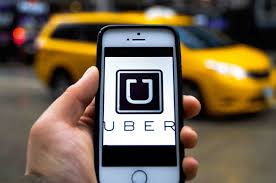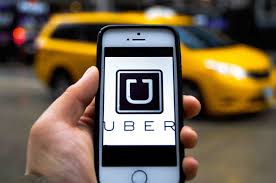
Following the identification Uber Technologies as a taxi company and not an IT company by the European Union’s top court, other similar online businesses in Europe are likely to be impacted. The court ruled that Uber should bee treated and regulated as any other taxi operator because it is a transport service.
Since Uber was launched in 2011, this ride hailing app company has completely changed the taxi industry. The company now has operations in over 600 cities through out the world.
Uber had argued that it should be subjected to the lighter regulations of the EU for online services because it said that it only plays an intermediary role between taxi owners and customers looking to get a taxi through its app.
“The service provided by Uber connecting individuals with non-professional drivers is covered by services in the field of transport,” the European Court of Justice (ECJ) said.
“Member states can, therefore, regulate the conditions for providing that service,” it said.
The ruling is based on a case that was initiated after professional taxi drivers’ association in Barcelona filed a complaint that the ride hailing company’s activities was resulting in misleading practices and unfair competition to the taxi drivers in Spain. This is centered around Uber appointing non-professional drivers for ferrying customers through an app service that was called UberPop. The service has been discontinued since in Spain and other countries.
Starting off as a Silicon Valley startup, Uber now has a total market value of $68 billion and it has approached the regulators and the established taxi and cab companies with the fight. An IPO in 2019 is being planned by the company.
Experts have been awaiting the Uber verdict to get an idea which way the treatment of other online companies in Europe – also known as the gig economy, would be meted out by the EU regulatory authorities. That list includes the now well known food-delivery company Deliveroo.
The ECJ said Uber “exercises decisive influence over the conditions under which the drivers provide their service” and that without the Uber mobile app “persons who wish to make an urban journey would not use the services provided by those drivers.”
Uber now has reduced the use of its unlicensed services such as UberPOP and meets local transportation laws and therefore the decision is not likely to create any immediate impact on the company’s operations in Europe.
“This ruling will not change things in most EU countries where we already operate under transportation law,” an Uber spokeswoman said in a statement.
“As our new CEO has said, it is appropriate to regulate services such as Uber and so we will continue the dialogue with cities across Europe. This is the approach we’ll take to ensure everyone can get a reliable ride at the tap of a button.”
The ruling was “not a setback, since we’ve already changed our approach in the EU to follow transportation laws and work with professional drivers,” said Uber CEO Dara Khosrowshahi in a tweet on Wednesday.
He said Uber will “keep talking with EU governments to enable affordable transportation services for millions more Europeans.”
The ruling provided “vital clarity to its (Uber‘s) position within the marketplace”, said Bernardine Adkins, head of EU, trade and competition law at Gowling WLG.
“Uber’s control over its drivers, its ability to set prices and the fact its electronic service is inseparable from its ultimate consumer experience means it is more than simply a platform connecting drivers to passengers.”
(Source:www.reuters.com)
Since Uber was launched in 2011, this ride hailing app company has completely changed the taxi industry. The company now has operations in over 600 cities through out the world.
Uber had argued that it should be subjected to the lighter regulations of the EU for online services because it said that it only plays an intermediary role between taxi owners and customers looking to get a taxi through its app.
“The service provided by Uber connecting individuals with non-professional drivers is covered by services in the field of transport,” the European Court of Justice (ECJ) said.
“Member states can, therefore, regulate the conditions for providing that service,” it said.
The ruling is based on a case that was initiated after professional taxi drivers’ association in Barcelona filed a complaint that the ride hailing company’s activities was resulting in misleading practices and unfair competition to the taxi drivers in Spain. This is centered around Uber appointing non-professional drivers for ferrying customers through an app service that was called UberPop. The service has been discontinued since in Spain and other countries.
Starting off as a Silicon Valley startup, Uber now has a total market value of $68 billion and it has approached the regulators and the established taxi and cab companies with the fight. An IPO in 2019 is being planned by the company.
Experts have been awaiting the Uber verdict to get an idea which way the treatment of other online companies in Europe – also known as the gig economy, would be meted out by the EU regulatory authorities. That list includes the now well known food-delivery company Deliveroo.
The ECJ said Uber “exercises decisive influence over the conditions under which the drivers provide their service” and that without the Uber mobile app “persons who wish to make an urban journey would not use the services provided by those drivers.”
Uber now has reduced the use of its unlicensed services such as UberPOP and meets local transportation laws and therefore the decision is not likely to create any immediate impact on the company’s operations in Europe.
“This ruling will not change things in most EU countries where we already operate under transportation law,” an Uber spokeswoman said in a statement.
“As our new CEO has said, it is appropriate to regulate services such as Uber and so we will continue the dialogue with cities across Europe. This is the approach we’ll take to ensure everyone can get a reliable ride at the tap of a button.”
The ruling was “not a setback, since we’ve already changed our approach in the EU to follow transportation laws and work with professional drivers,” said Uber CEO Dara Khosrowshahi in a tweet on Wednesday.
He said Uber will “keep talking with EU governments to enable affordable transportation services for millions more Europeans.”
The ruling provided “vital clarity to its (Uber‘s) position within the marketplace”, said Bernardine Adkins, head of EU, trade and competition law at Gowling WLG.
“Uber’s control over its drivers, its ability to set prices and the fact its electronic service is inseparable from its ultimate consumer experience means it is more than simply a platform connecting drivers to passengers.”
(Source:www.reuters.com)














